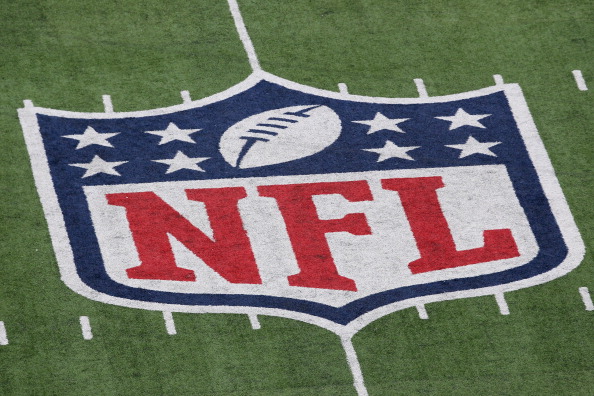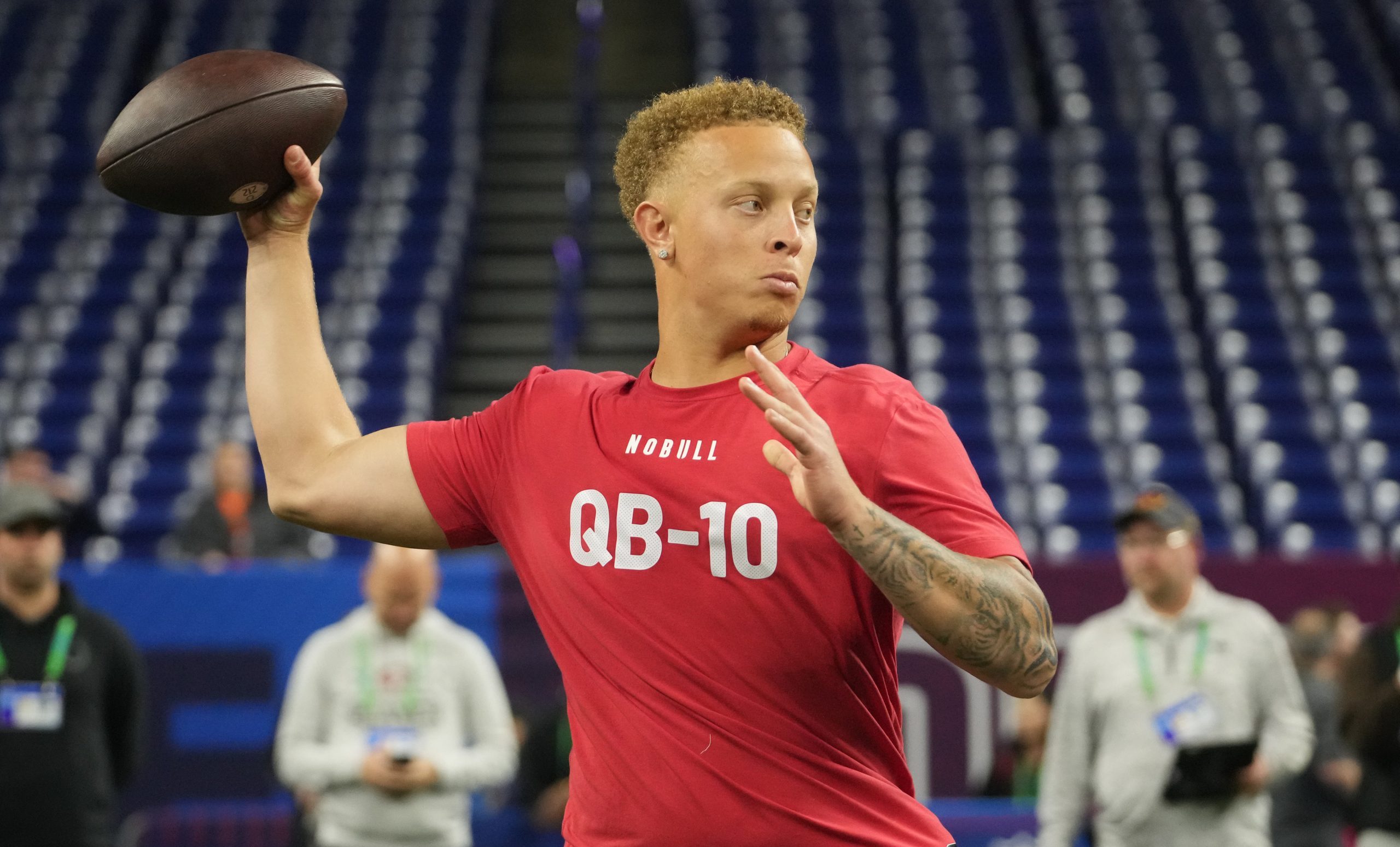Over the last 50 years, the National Football League on television has seen many changes. Back in 1964, only one network aired the NFL while another network aired the rival American Football League games. Going into 1964, CBS had completed a two-year contract to air the NFL for $9.3 million. The AFL was going into its final year with ABC for just over $2 million annually.
As for NBC, it had rights to the NFL Championship Game and college football games through the NCAA.
In a New York Times article written by Val Adams exactly 50 years ago today, we find that CBS had won the rights to air NFL games for the 1964 and 1965 seasons for what is now a paltry $28.2 million. Now think about that. The 14 teams in the league would share the $14.1 million that CBS would pay for the 1964 season meaning that the network had rights to as many as 7 games each Sunday.
At the time, all home games were blacked out locally even if they were sold out meaning that fans had to either listen on the radio or in some cases, drive outside the 75-mile radius which constituted the blackout zone and watch in a hotel, bar or someone’s house.
Over the last half-century, the NFL and AFL merged, bringing the league at first to 24 teams, then expanding to 28 by 1970 eventually to the 32 teams it has currently. By 1970, the NFL expanded its rights to three networks, ABC, CBS and NBC. In 2014, games are aired on five networks including two on cable.
Here are some of the television milestones since 1964:
1964
The AFL signs a five-year, $36 million contract with NBC taking rights away from ABC.
The NFL signs a two-year contract with CBS for regular season games for $28.2 million. It later signs a deal for the NFL Championship games for $1.8 million per game for 1964 and 1965.
1965
CBS signs a two-year deal to televise the 1966 and 1967 seasons with an option for the 1968 season for $18.8 million annually.
1966
CBS gains the rights to the NFL Championship game in 1966 and 1967 for a price of $2 million per game.
NFL Commissioner Pete Rozelle announces the merger of the National and American Football Leagues starting with an AFL-NFL Championship Game, then an expanded NFL in 1970.
Rights to Super Bowl I (AFL-NFL Championship Game) were sold to CBS and NBC for $9.5 million
1967
Super Bowl I airs on CBS and NBC simultaneously, the only time the game has aired on two networks. The game was blacked out in Los Angeles.
1969
Curt Gowdy with Kyle Rote and Al DeRogatis calls Super Bowl III, NBC’s first exclusive telecast of the Big Game. The New York Jets defeats the Baltimore Jets 16-7 marking the first win by the AFL over the NFL.
NFL Commissioner Pete Rozelle sells the rights for the league’s first primetime package, Monday Night Football to ABC, a three-year contract beginning in 1970 for $8 million annually.
1970
The expanded NFL signs a four-year deal with CBS to air NFC games and NBC to air AFC games. The two networks will alternate airing the Super Bowl and Pro Bowl. The two pay a combined $156 million over four seasons.
ABC’s first Monday Night Football game is the New York Jets at the Cleveland Browns with Keith Jackson, Don Meredith and Howard Cosell on the call.
1973
ABC, CBS and NBC sign a new four-year contract with the NFL totaling $218 million. CBS and NBC continue to alternate the Super Bowl and Pro Bowl.
The NFL changes its blackout rule on home games allowing them to be aired in the local markets provided they’re sold out 72 hours in advance.
1977
The three networks renew their deals with the NFL starting with the 1978 season. ABC expands its schedule to 16 Monday Night games, four additional primetime games, the Pro Bowl and the annual Hall of Fame Game. CBS and NBC continue to alternate the Super Bowl. Total fee from the networks for four years is $646 million.
1978
Super Bowl XII on CBS is seen by over 102 million viewers, the first time the Big Game surpasses the 100 million mark.
1981
ABC and CBS set record ratings for the NFL, ABC averages a 21.7 rating for Monday Night Football, CBS finished with a 17.5 rating for the NFC package while the AFC on NBC was down from the previous year to 13.9.
1982
The NFL signs a five-year, $2.1 billion contract with the TV networks. For the first time, ABC joins the Super Bowl rotation with Super Bowl XIX in 1985.
1985
Super Bowl XIX on ABC between San Francisco and Miami draws its highest rating/share ever with 46.4/64.0.
1986
Super Bowl XX on NBC between Chicago and New England averages a 48.3/70.
Monday Night Football becomes the longest-running primetime series on American television.
1987
The NFL announces a new three-year, $1.43 billion contract with ABC, CBS, NBC and with ESPN marking its first-ever cable partner. ESPN will air 8 Sunday night games in the second half of the season. All four networks pay a total of $476 million over three years.
1990
The NFL adds TNT increasing its television partners to five. TNT will air 9 Sunday night games in the first half of the season. ABC, CBS, ESPN, NBC and TNT pay a total of $900 million annually for four years.
The NFL on TNT premieres, originally called “Sunday Nitro.” Skip Caray and Pat Haden are the original announcers.
1993
The NFL signs a groundbreaking four-year contract which does not include CBS for the first time since 1956. Fox takes over the NFC contract for $395 million annually. ABC, ESPN, NBC and TNT renew their deals through 1997. The TV networks pay $4.39 billion, the first time their combined rights fees average over $1 billion annually.
1994
CBS’ last NFL game until the 1998 regular season is the NFC Championship between the San Francisco 49ers and the Dallas Cowboys. Here’s the NFL on CBS farewell.
The NFL announces a new direct-to-satellite subscription service, “NFL Sunday Ticket.”
1997
Fox makes history by airing Super Bowl XXXI between the Green Bay Packers and the New England Patriots, its first-ever Big Game.
1998
The NFL signs its longest TV contract, eight years. For the first time since 1955, NBC will not air pro football. CBS gains the rights to the AFC for $500 million annually. ESPN also wins the rights to the entire season of Sunday Night Football throwing out TNT. ABC and Fox retain the rights to Monday Night Football and the NFC respectively. Also included in the contract is DirecTV which pays $400 million for the exclusive rights to NFL Sunday Ticket. The networks will pay a total of $2.6 billion annually. The total value of the contract is $19.6 billion.
NBC’s last football game is Super Bowl XXXII. It won’t air another Super Bowl until 2008.
Week One of the NFL on CBS in 1998 includes Miami at Indianapolis which was Peyton Manning’s first NFL start and it was called by Ian Eagle and … Mark May?????
2003
In January, the NFL says it will launch its own channel, the NFL Network. It premieres on DirecTV and a handful of cable providers on November 4 with Rich Eisen interviewing NFL Commissioner Paul Tagliabue.
2004
The NFL unveils six-year contract extensions with CBS and Fox to run through the 2011 seasons. It also signs a five-year extension with DirecTV.
2005
After rumors that the NFL would either award both Sunday and Monday Night Football to ESPN or split the Sunday Night Football package between CBS and Fox, the league decides on one network. NBC returns to the National Football League by signing a six-year deal for the rights to Sunday Night Football. Included with the rights is flex scheduling which allows the NFL to move games from the afternoon into primetime.
ESPN acquires the rights to the Monday Night Football franchise taking over for ABC. For the first time, an NFL TV partner pays over $1 billion annually in fees. ESPN will air 17 regular season games over eight years.
The overall value of the TV contracts is $22.4 billion.
The last Monday Night Football game on ABC is the New England Patriots at the New York Jets. Here’s the final open as done by Frank Gifford, the late Don Meredith and Al Michaels.
2006
ABC’s last NFL game for the foreseeable future is Super Bowl XL from Detroit between the Pittsburgh Steelers and the Seattle Seahawks.
The NFL says NFL Network will air eight late-season games mostly on Thursday nights with two Saturday night games. Its schedule includes a Thanksgiving night contest expanding the holiday to three games.
NBC’s return to the NFL is highlighted with Sunday Night Football’s theme “I’ve Been Waiting All Day for Sunday Night” as sung by Pink.
ESPN’s first year with Monday Night Football is highlighted with the return of the NFL to New Orleans after Hurricane Katrina and the punt block by Steve Gleason. Mike Tirico, Joe Theismann and Tony Kornheiser were on the call. The season is marred by celebrity interviews which do not work and are panned by fans.
https://www.youtube.com/watch?v=Jw4JFabSivo
2009
The NFL announces a two-year extension of its deals with CBS, Fox and NBC through the 2013 season.
NFL signs a four-year extension through 2014 with DirecTV for the Sunday Ticket package at a price of $1 billion annually.
2011
The NFL signs an eight-year deal with ESPN for Monday Night Football starting in the 2014 season running through 2021. ESPN will pay $2 billion per season which also includes the rights to a Wild Card Playoff game.
Later in the year, the NFL announces a nine-year contract with CBS, Fox and NBC with each paying the NFL around $1 billion annually. The three networks will each air three Super Bowls during that period through 2022. Overall, the league will collect a reported $27 billion during the life of the contracts from its various media deals.
2012
The NFL tells the world that NFL Network’s Thursday Night Football will expand to 13 games.
2014
Super Bowl XLVIII on Fox sets a viewing record with 112.3 million people watching the Seattle Seahawks blowing out the Denver Broncos.
The NFL signs a one-year contract with a one-year option with CBS for a reported $275 million to air and produce Thursday Night Football. CBS wins over bids from ESPN, Fox, NBC and Turner Sports. CBS will broadcast the first half of the TNF schedule with NFL Network taking the second half. Jim Nantz, Phil Simms and Tracy Wolfson will work the entire slate of games. Here’s the theme.
DirecTV signs a new eight-year deal with the NFL for the Sunday Ticket package worth an estimated $12 billion.
2015
The NFL picks up CBS’ option for Thursday Night Football for the 2015 season.
As you can see, the rights fees have not only increased exponentially, but have made the NFL one of the richest sports leagues in the world. And over the last 50 years, many changes have been made when it comes to televising NFL games whether it be on broadcast, cable and satellite television.
Who knows what the retrospective will look when we look back at 60 years of the NFL on TV and perhaps the internet.
[The Economic Structure of the NFL/NFL.com: 1, 2, 3, 4, 5/New York Times/Darren Rovell]








Comments are closed.